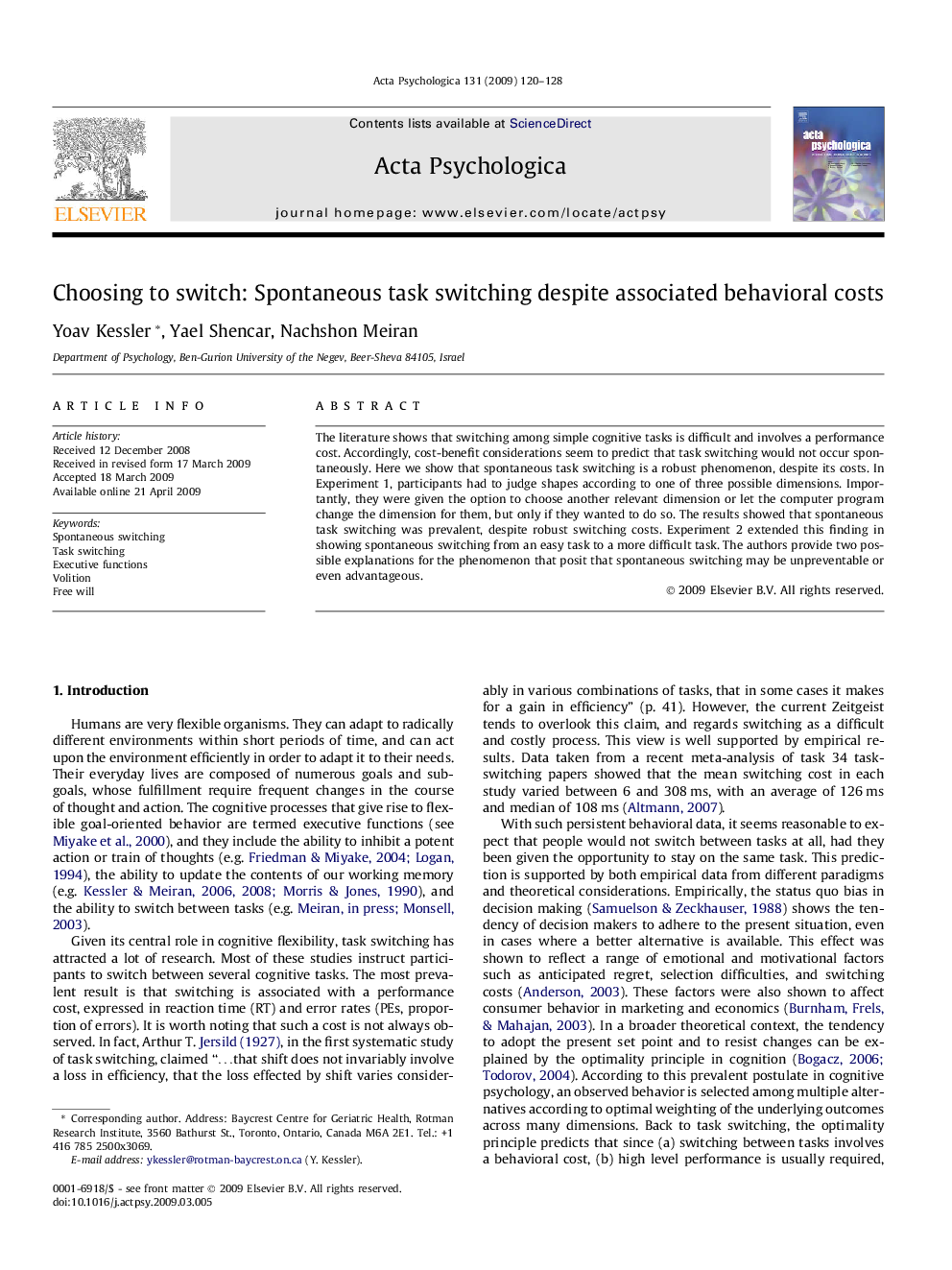| Article ID | Journal | Published Year | Pages | File Type |
|---|---|---|---|---|
| 920362 | Acta Psychologica | 2009 | 9 Pages |
The literature shows that switching among simple cognitive tasks is difficult and involves a performance cost. Accordingly, cost-benefit considerations seem to predict that task switching would not occur spontaneously. Here we show that spontaneous task switching is a robust phenomenon, despite its costs. In Experiment 1, participants had to judge shapes according to one of three possible dimensions. Importantly, they were given the option to choose another relevant dimension or let the computer program change the dimension for them, but only if they wanted to do so. The results showed that spontaneous task switching was prevalent, despite robust switching costs. Experiment 2 extended this finding in showing spontaneous switching from an easy task to a more difficult task. The authors provide two possible explanations for the phenomenon that posit that spontaneous switching may be unpreventable or even advantageous.
